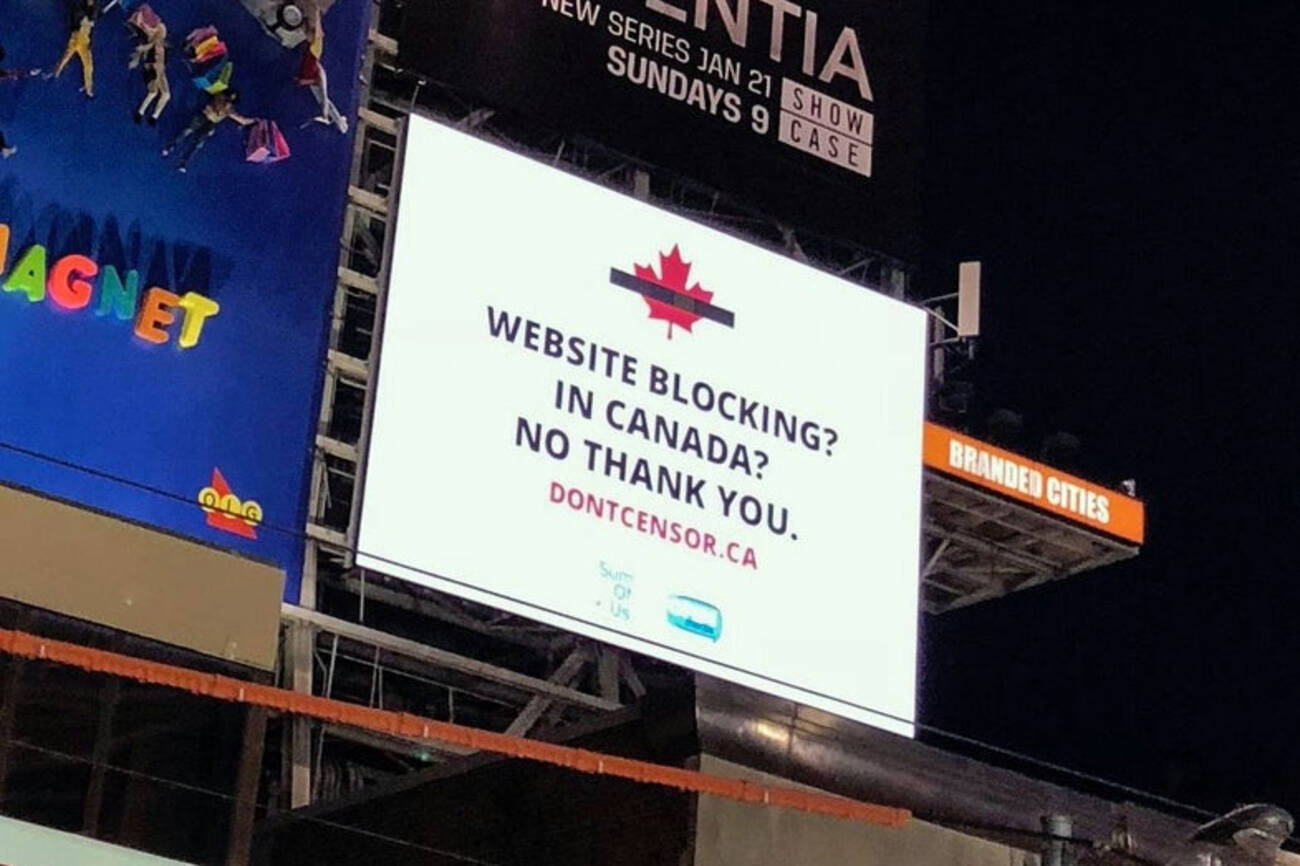
Your right to access an uncensored version of the internet in Canada is at risk - serious, imminent and potentially devastating risk, according to experts.
The digital rights advocacy group OpenMedia has staged what it calls a "day of action" this week against 25 corporations (including Bell, Rogers and CBC) that are asking the federal government for greater control over what Canadians can and can't access with their own devices online.
"They want to create an official Internet censorship committee within the federal government, without court oversight," explains the non-profit group, which has been working to protect a free and open internet since 2008.
"This dangerous and over-reaching proposal will lead to legitimate content and speech being censored, violating our right to free expression and the principles of Net Neutrality, which the federal government has consistently pledged support for."
ICYMI: The case against @Bell coalition's website blocking plan illustrated (adapted from @mgeist's blog series).
— OpenMedia (@OpenMediaOrg) February 24, 2018
More reasons why this plan doesn't make sense: https://t.co/ioHphqoY6F
ACT NOW: https://t.co/MCOAxUo2ue #DontCensor #CRTC #cdnpoli pic.twitter.com/85kPUnF4pp
The coalition of telecoms and entertainment companies (a full list of which can be seen here) says its trying to crack down on internet piracy.
"Piracy is a large and growing problem that threatens the massive
employment, economic, and cultural contributions of Canada's film,
television, and music industries," reads the group's application to Canada's Radio-television and Telecommunications Commission (CRTC.)
To stop losing so much money, these companies want to establish an "independent agency to identify websites and services that are blatantly, overwhelmingly, or structurally engaged in piracy."
On February 28 join the national day of action to tell the CRTC #dontcensor the web in Canada. @OpenMediaOrg has prepared fantastic social media resources to help get the word out. pic.twitter.com/1MtRlQgVqW
— CJFE (@CJFE) February 20, 2018
If the request is approved, internet service providers would be required, by law, to block such websites once they're identified by the agency – which doesn't sound too terrible in and of itself.
What concerns net neutrality advocates is the framework that these rules set up for corporations and government bodies to censor what Canadians can do, see and publish online.
In China, for instance, everything from YouTube and Instagram to articles that mention Winnie The Pooh have been blocked off by government officials in recent years.
.@Bell: Withdraw your support for @FairPlayCanada. You guys suck, maybe move to China. (cc: @CRTCeng @NavdeepSBains) https://t.co/PKp8qHxpzT #DontCensor
— Dan Doucette (@dan_doucette) February 21, 2018
Open Media has staged a widespread "Don't Censor" campaign to fight back against what it calls the "website blocking plan."
The campaign is being supported by more than 30 different digital rights and civil liberties associations, including Canadian Journalists for Free Expression, Creative Commons, the Electronic Frontier Foundation and the Ontario Library Association.
Today, Wednesday, February 28, citizens are being encouraged to tell the CRTC how they feel by signing a petition or commenting directly on the regulator body's website (among other actions.)
Incredible to see power of @Reddit + Canadians standing up against Bell-led censorship proposal. Check out https://t.co/OFBUIWv35j to see page take over urging ppl to take action at https://t.co/3l3OIdLjJO + early this morning on r/Canada, Top 3 posts were about @Bell #DontCensor pic.twitter.com/E53GZXMpWz
— ~ k@+¥ ~ (@KatyAnderson) February 28, 2018
The goal is to gather at least 50,000 comments for the CRTC by the end of today, though, as Mobile Syrup reports, the CRTC has extended its deadline for comments on the application until March 29th, 2018.
"If Big Telecom providers control the Internet, they'll slow down your favorite web services, raise prices, and even censor content or entire platforms," reads Open Media's website.
"This is not fiction. They're actively lobbying for legislation that will give them these powers."
by Lauren O'Neil via blogTO

No comments:
Post a Comment